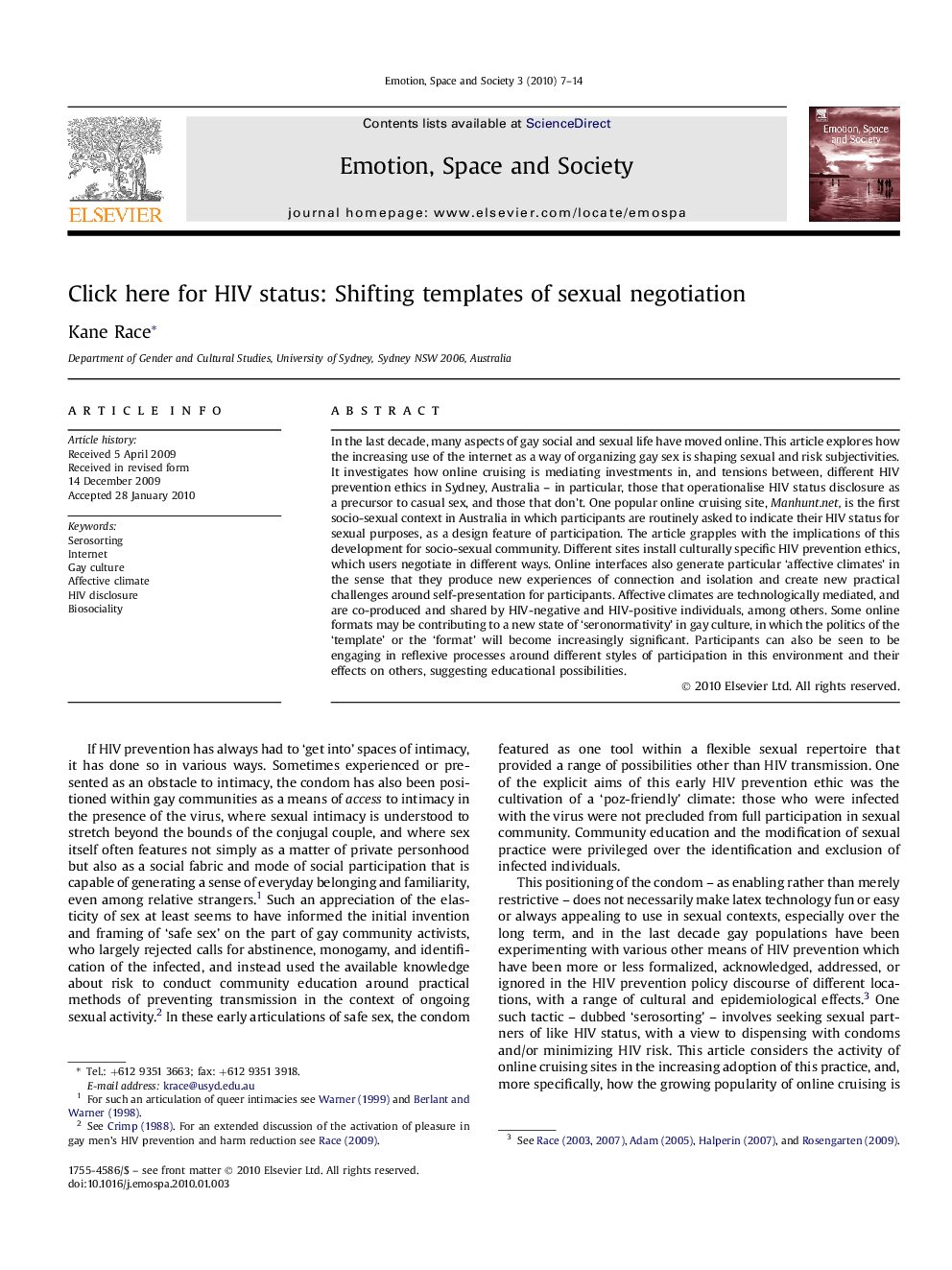| Article ID | Journal | Published Year | Pages | File Type |
|---|---|---|---|---|
| 946773 | Emotion, Space and Society | 2010 | 8 Pages |
Abstract
In the last decade, many aspects of gay social and sexual life have moved online. This article explores how the increasing use of the internet as a way of organizing gay sex is shaping sexual and risk subjectivities. It investigates how online cruising is mediating investments in, and tensions between, different HIV prevention ethics in Sydney, Australia - in particular, those that operationalise HIV status disclosure as a precursor to casual sex, and those that don't. One popular online cruising site, Manhunt.net, is the first socio-sexual context in Australia in which participants are routinely asked to indicate their HIV status for sexual purposes, as a design feature of participation. The article grapples with the implications of this development for socio-sexual community. Different sites install culturally specific HIV prevention ethics, which users negotiate in different ways. Online interfaces also generate particular 'affective climates' in the sense that they produce new experiences of connection and isolation and create new practical challenges around self-presentation for participants. Affective climates are technologically mediated, and are co-produced and shared by HIV-negative and HIV-positive individuals, among others. Some online formats may be contributing to a new state of 'seronormativity' in gay culture, in which the politics of the 'template' or the 'format' will become increasingly significant. Participants can also be seen to be engaging in reflexive processes around different styles of participation in this environment and their effects on others, suggesting educational possibilities.
Related Topics
Social Sciences and Humanities
Psychology
Social Psychology
Authors
Kane Race,
